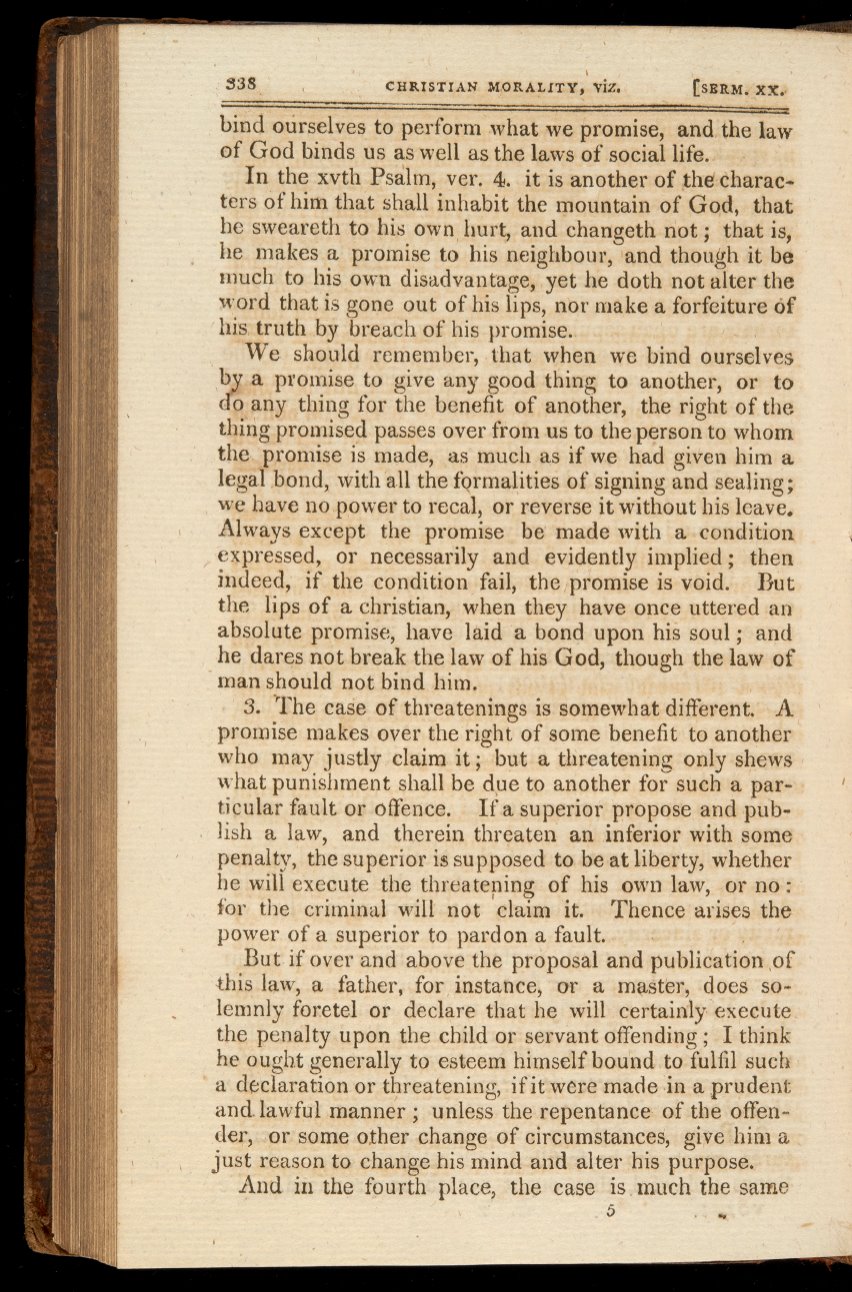

338
CHRISTIAN MORALITY,
VIZ.
[SRAM.
X.
bind
ourselves to perform what
we
promise,
and
the
law
of
God
binds us
as well as
the
laws
of
social
life.
In
the
xvth Psalm,
ver.
4.
it
is
another of the charac-
ters of
him
that
shall
inhabit
the mountain
of
God,
that
he sweareth to
his own
hurt, and changeth not
;
that
is,
he makes
a
promise
to his
neighbour,
and
though
it
be
much to
his own
disadvantage, yet he doth
not alter the
word that
is
gone
out
of
his lips,
nor
make
a
forfeiture
Of
his
truth
by
breach
of
his
promise.
We
should remember,
that
when
we
bind ourselves
by
a
promise
to give any good
thing
to
another,
or
to
do
any
thing
for the benefit
of
another, the
right of the
thing
promised passes over from
us
to
the person
to
whom
the
promise
is
made,
as much as
if
we
had
given him
a
legal bond, with
all
the
formalities
of
signing and
sealing;
we
have
no power to
recai, or reverse
it
without
his
leave.
Always
except
the promise be made with
a
condition
expressed, or
necessarily and evidently implied
;
then
indeed,
if
the condition
fail,
the promise
is
void.
But
the
lips
of
a
christian, when they have once
uttered
an
absolute
promise, have
laid
a
bond
upon
his
soul
;
and
he dares
not
break
the
law
of
his
God, though the
law
of
man should not bind
him.
3.
The
case
of threatenings
is
somewhat
different.
A
promise makes over the
right of
some benefit to
another
who
may
justly
claim
it;
but a threatening
only shews
what punishment
shall be
due
to
another
for
such
a
par
-
ticular fault
or
offence.
If
a
superior propose and pub-
lish
a
law,
and therein threaten an
inferior
with some
penalty, the
superior
is
supposed to
be
at
liberty,
whether
he
will
execute
the
threatening
of
his own
law,
or
no
:
for the criminal
will
not
claim it.
Thence
arises
the
power
of
a
superior
to
pardon
a fault.
But if
over
and above the proposal and publication
of
this
law,
a father, for instance, or
a
master,
does
so-
lemnly foretel
or
declare
that
he
will
certainly
execute
the penalty upon the
child
or servant
offending
;
I
think
he
ought generally
to esteem
himself bound
to fulfil
such
a
declaration or threatening,
if
it were made
in
a
prudent
and. lawful
manner
;
unless the
repentance of
the
offen-
der,
or
some
other
change
of
circumstances,
give
him
a
just
reason
to
change
his
mind and
alter
his
purpose.
And
in the
fourth
place,
the
case
is
much
the
same
5

















